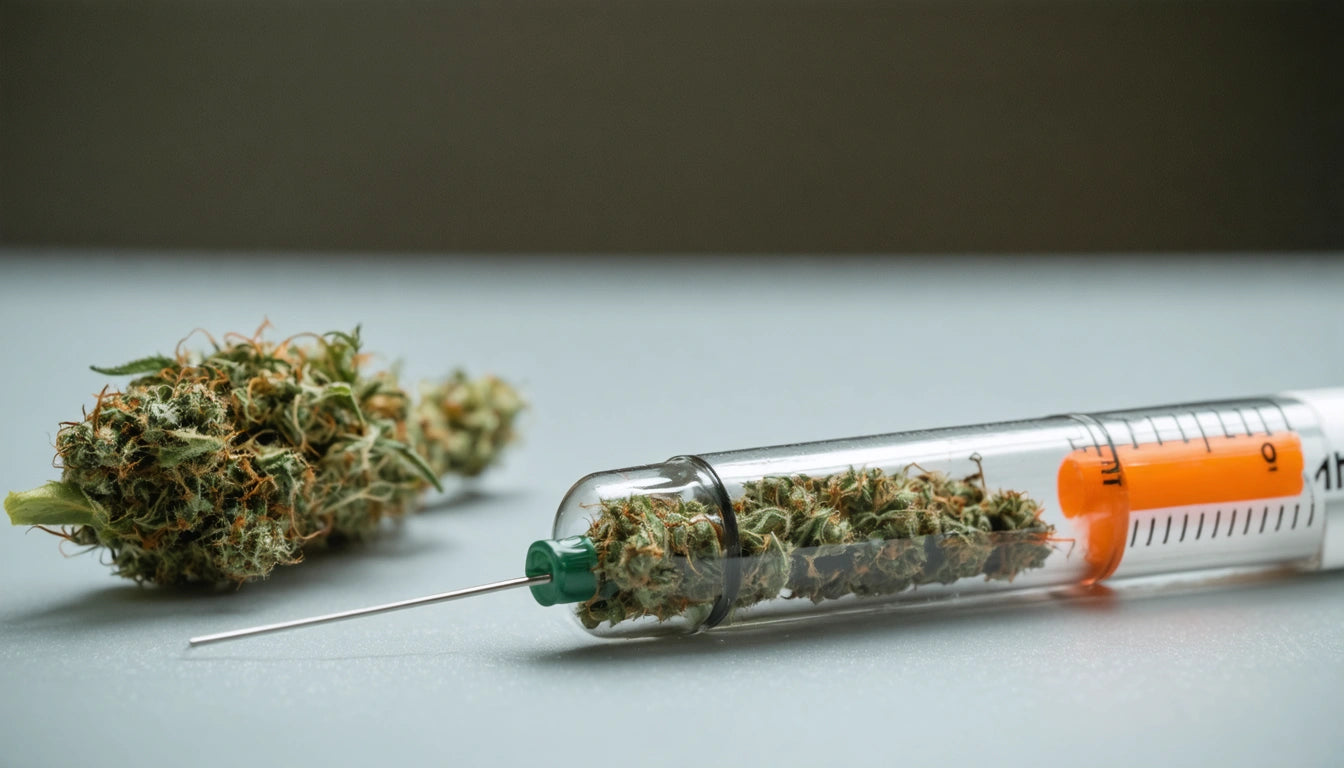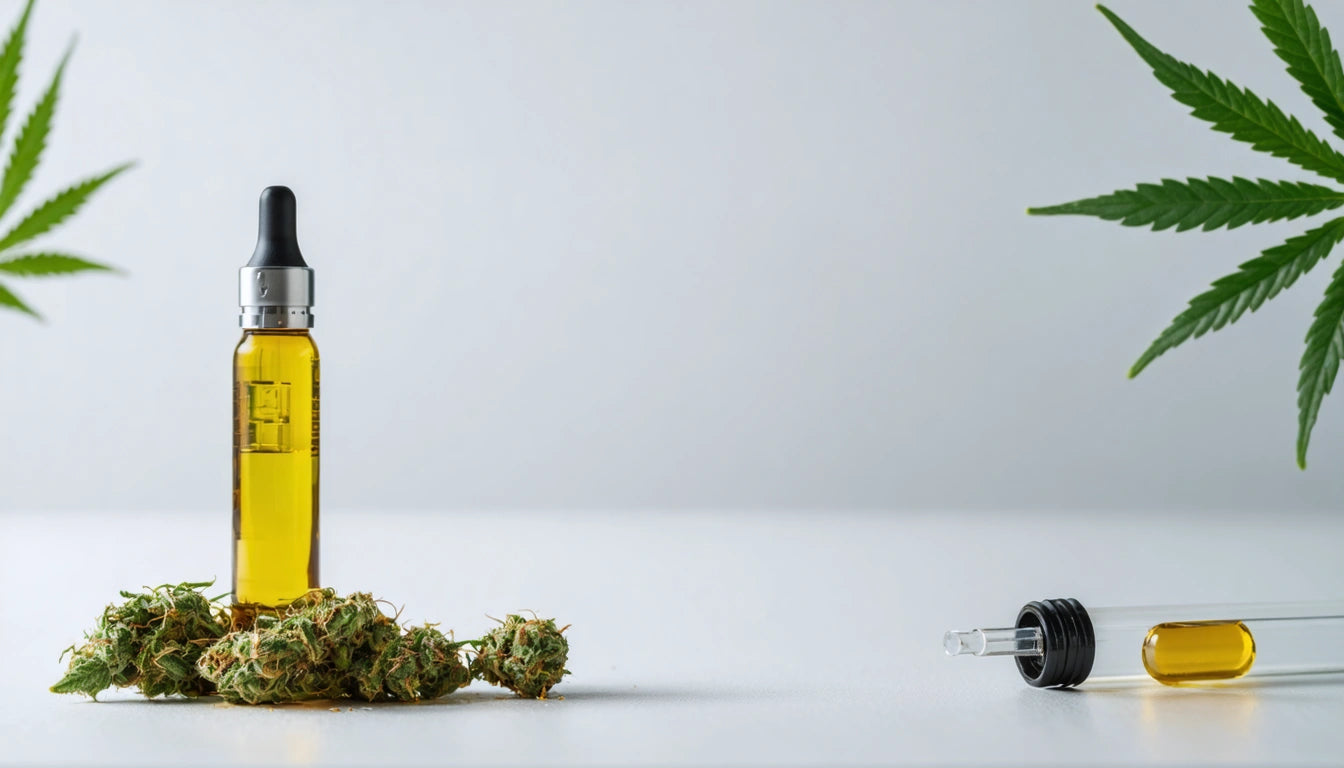Table of Contents
How Long Does Weed Stay in Your Bloodstream?
Cannabis detection in blood depends on several factors including frequency of use, metabolism, and testing methods. Understanding how long weed remains in your bloodstream is crucial for those facing drug tests or concerned about detection windows.
Detection Window Basics: How Long Weed Stays in Blood
For occasional users, cannabis typically remains detectable in blood for 1-2 days after consumption. However, cannabis detection in blood tests can vary significantly based on usage patterns:
- Single use: 1-2 days
- Moderate use (4 times/week): 3-4 days
- Heavy use (daily): 5-7 days
- Chronic heavy use (multiple times daily): Up to 30 days
Blood tests primarily detect active THC (delta-9-tetrahydrocannabinol), the psychoactive compound in cannabis, rather than metabolites. This makes blood testing particularly effective for identifying recent use or current impairment.
Factors Affecting How Long Cannabis Remains in Blood
1. Frequency and Amount of Use
Regular cannabis users retain THC in their bloodstream longer than occasional users. This occurs because THC accumulates in fat cells and is gradually released back into the bloodstream over time.
2. Metabolism and Body Composition
Individual metabolic rates significantly impact how long weed stays in your system. People with faster metabolisms typically clear cannabis from their bloodstream more quickly. Body composition also matters, as individuals with higher body fat percentages may store THC longer.
3. Consumption Method
How you consume cannabis affects its detection window:
- Smoking/vaping: Rapid blood absorption with detection possible within minutes
- Edibles: Slower absorption but potentially longer detection periods
- Concentrates: Higher THC levels may extend detection times
Blood Tests vs. Other Cannabis Detection Methods
Blood testing offers a shorter detection window compared to other common testing methods:
- Blood: 1-7 days for most users
- Urine: 3-30+ days depending on usage
- Hair: Up to 90 days
- Saliva: 1-3 days
Blood tests are generally considered more invasive but provide a better indication of current impairment. This makes them more common in situations involving accidents, workplace incidents, or DUI cases rather than pre-employment screening.
Cannabis detection in urine relies on metabolites rather than active THC, which is why detection periods are typically longer with that method.
How Your Body Metabolizes Cannabis
When cannabis enters your system, THC is rapidly absorbed into the bloodstream. From there, it's distributed to various tissues, including the brain, where it produces psychoactive effects. The liver then metabolizes THC into compounds called metabolites.
The primary metabolite, THC-COOH, is not psychoactive but remains detectable long after the effects have worn off. While blood tests can detect both active THC and its metabolites, they primarily focus on active THC to determine recent use.
This metabolic process explains how long it takes for weed to leave your system and why detection times vary between testing methods.
Can You Reduce How Long Weed Stays in Your Blood?
While many products claim to help clear cannabis from your system quickly, most lack scientific support. However, some natural approaches may potentially help:
- Hydration: Drinking water helps with general detoxification
- Exercise: May accelerate metabolism of THC
- Healthy diet: Supports liver function and metabolism
- Time: The most reliable factor in clearing cannabis from your system
It's important to note that these methods are not guaranteed to reduce detection times significantly, and marijuana use can affect various blood tests beyond just drug screening.
Safety Considerations for Cannabis Users
Understanding detection windows is important, but safety should always be the priority when using cannabis products. Proper storage and handling are essential, especially in households with children.
Cannabis products should be stored in appropriate child-resistant packaging solutions to prevent accidental ingestion, similar to how medications and household chemicals are secured. These safety measures are crucial as cannabis products become more widely available in various forms.
Additionally, being aware of how long cannabis stays in your system helps users make informed decisions about timing consumption, especially when it might affect driving, workplace performance, or medical procedures.
Remember that blood tests provide the most accurate picture of current impairment, making them particularly relevant for situations where recent use matters more than historical consumption.











Leave a comment
All comments are moderated before being published.
This site is protected by hCaptcha and the hCaptcha Privacy Policy and Terms of Service apply.